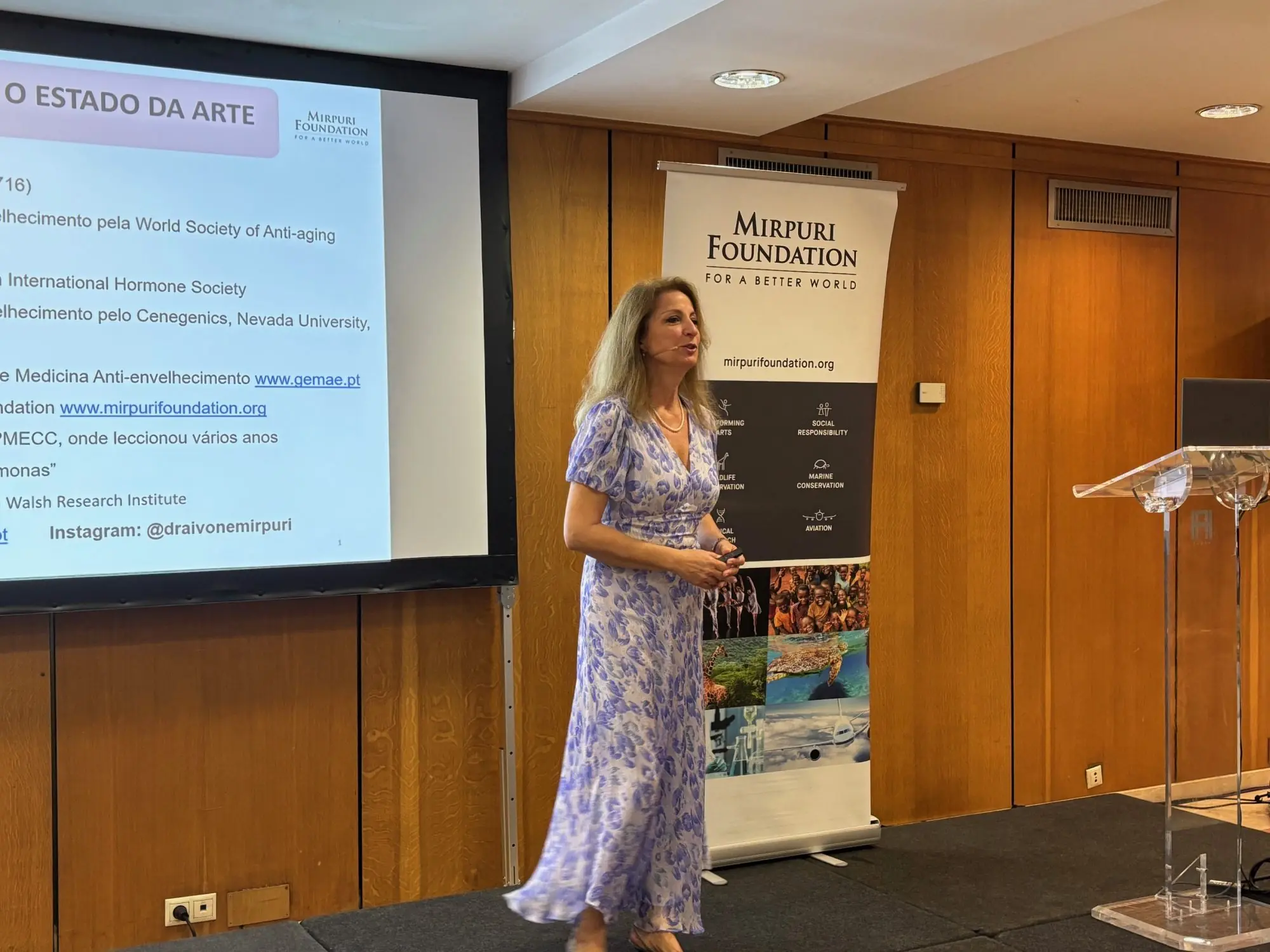Plastic Pollution: A Health Crisis We Can’t Ignore
On April 5th, Dr. Ivone Mirpuri, Medical Advisor of the Mirpuri Foundation, captivated an audience of nearly 700 attendees at the conference titled “Menopausa – The State of the Art” in Lisbon.
The highlight of her opening address was the alarming fact that menopause is occurring at increasingly younger ages, primarily due to endocrine disruption. The greatest culprit behind this disruption is plastic, which damages the thyroid – the gland that plays a crucial role in coordinating ovarian function.
Dr. Mirpuri, a world-renowned expert in hormone medicine and anti-aging, stressed that the widespread use of plastic is endangering our hormonal health and, ultimately, our survival. She warned that if drastic changes are not made today, the human race could face extinction in as little as 200 years due to the persistent effects of plastic pollution.
Dr. Mirpuri’s lecture revealed that the chemical contaminants found in plastic act as endocrine disruptors, interfering with the body’s hormonal functions. These disruptions are particularly concerning in relation to menopause, as the use of plastics has led to earlier onset of menopause. This is primarily due to their damaging effect on the thyroid, the gland that plays a crucial role in coordinating ovarian function. Hormones control a wide range of vital processes in the body, including metabolism, mood, blood pressure, and fertility. The chemicals leaching from plastics are linked to developmental abnormalities and severe health problems.
“Endocrine disruptors are now found in nearly every aspect of our lives— in everything from personal care products like perfumes and shampoos to the synthetic materials used in our clothing, furniture, and even the air we breathe,” Dr. Mirpuri explained.
Dr. Mirpuri presented alarming research that shows the chemical contaminants in plastics, such as phthalates and bisphenol A, are directly linked to rising health issues. Reduced fertility, an increase in cancer rates (including breast, pancreatic, and lung cancers), early puberty, heart disease, obesity, and respiratory problems have all been linked to plastic exposure, starting in the womb.
“Fertility has decreased by 50% over the last 50 years, and the number of reproductive issues, including testicular cancer, has increased by 400% since the 1940s. We are seeing more severe health issues than ever before,” Dr. Mirpuri said, urging immediate action to limit plastic use.
Microplastics—tiny particles of plastic less than five millimeters in size—pose an even greater threat, as they enter our bodies through the air, water, and food. Dr. Mirpuri highlighted how these particles can lead to diseases such as cancer, asthma, infertility, and obesity, warning that their long-term impact is still not fully understood.
Throughout her presentation, Dr. Mirpuri stressed the need for a global shift toward limiting exposure to plastic. She called on individuals, businesses, and organizations to take responsibility for their plastic consumption and make healthier, more sustainable choices.
“Educating younger generations about the dangers of plastic and endocrine disruptors is essential. We must raise awareness so that future generations can protect their health and strengthen their immune systems,” Dr. Mirpuri emphasized.
Dr. Ivone Mirpuri is a Clinical Pathologist with specialized training in Anti-Aging Medicine from the Hertoghe Medical School in Brussels. She also trained at the prestigious Cegenics Institute in Las Vegas. As a leading authority in Anti-Aging Medicine and Hormonal Therapies, she continues to dedicate her career to helping individuals lead longer, healthier lives.
Dr. Mirpuri’s message was clear: plastic pollution is not just an environmental issue, but a health crisis that demands urgent action. The conference in Lisbon served as a powerful platform to educate the public and inspire change in the fight against plastic’s detrimental effects on human health. The Mirpuri Foundation remains committed to raising awareness, advancing research, and promoting healthier lifestyles to protect future generations.





